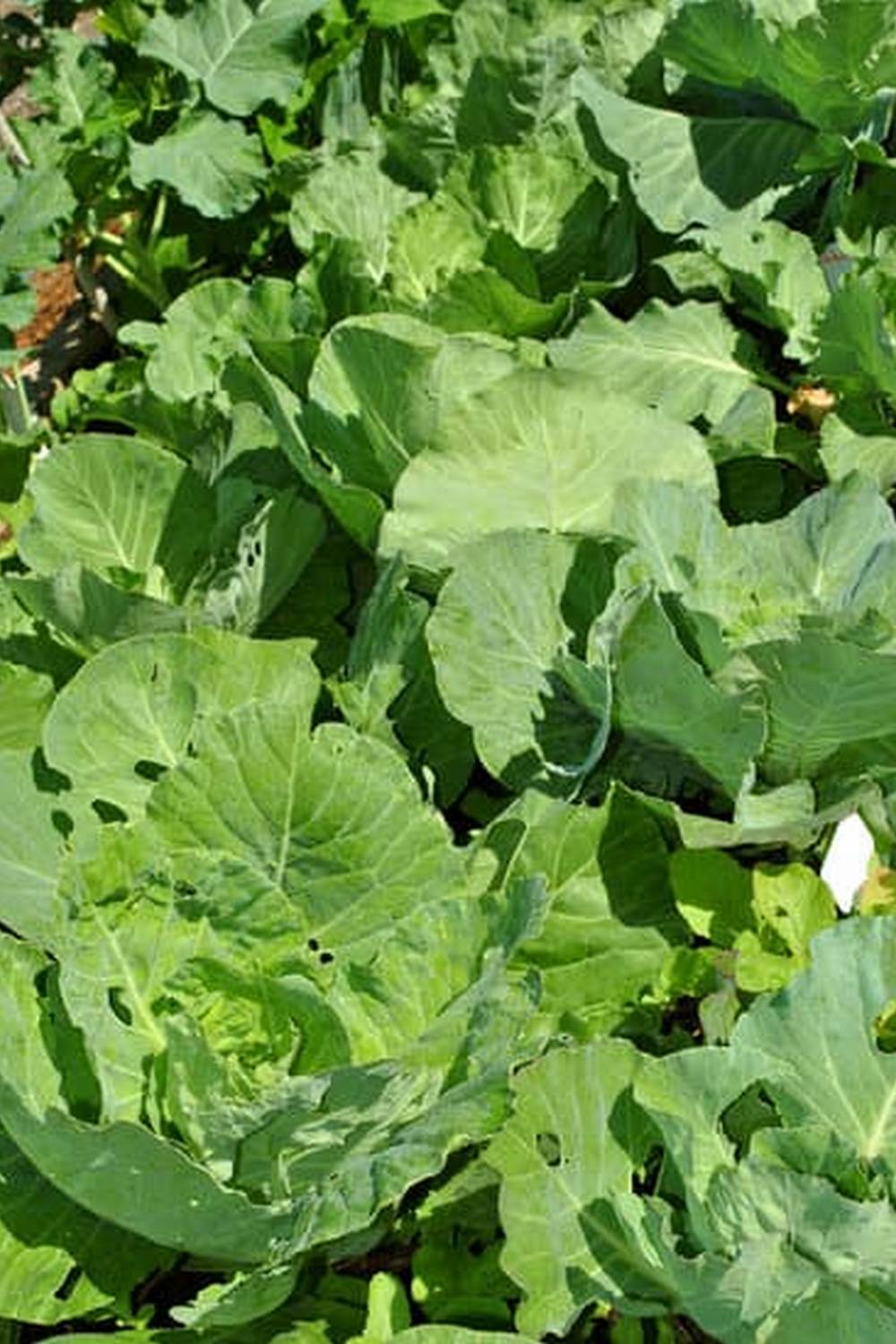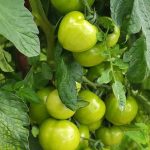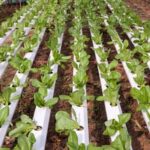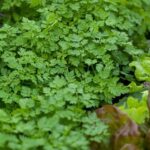Are you looking for sustainable and affordable solutions to keep your vegetable garden thriving? Look no further than homemade remedies for vegetable gardens. In this article, we will explore the benefits of using natural and DIY solutions to combat pests, diseases, and other challenges that gardeners commonly face. From pest control to fertilizers to weed management, there are numerous homemade remedies that can nourish your vegetable plants and protect them from harm.
Maintaining a healthy vegetable garden can be a challenge, especially when faced with common pests and diseases. Whether it’s aphids, caterpillars, or powdery mildew, these issues can have a detrimental impact on the health and yield of your crops. However, with the use of homemade remedies, you can effectively address these problems without resorting to harmful chemicals or expensive commercial products.
By utilizing household ingredients and natural substances, you can create DIY pest control solutions that are safe for your plants and the environment. In addition to managing insect infestations, homemade fertilizers can provide essential nutrients to nourish your vegetable plants. Furthermore, organic weed control methods can help you manage unwanted vegetation without introducing harmful chemicals into your garden. With an understanding of these benefits, you will be well-equipped to embrace sustainable practices in your vegetable garden.
Common Pests and Diseases in Vegetable Gardens
As any gardener knows, pests and diseases are common challenges that can threaten the health and productivity of vegetable gardens. Common pests such as aphids, caterpillars, and beetles can quickly infest a garden, while diseases like powdery mildew and blossom end rot can damage or kill plants. Recognizing the signs of pest infestations and diseases is essential for taking prompt action to protect your vegetable garden.
One of the key benefits of using homemade remedies for vegetable gardens is that they provide natural solutions for controlling common pests and diseases. Homemade remedies are often gentler on plants and the environment compared to chemical pesticides and herbicides. Additionally, many homemade remedies can be made using simple ingredients found in the kitchen or garden, making them affordable and accessible to all types of gardeners.
When it comes to managing common pests in vegetable gardens, homemade remedies offer a range of natural solutions. For example, creating a garlic spray can help repel insects such as aphids and spider mites, while diatomaceous earth can be used to control slugs and snails.
Similarly, introducing beneficial insects like ladybugs and lacewings can help keep pest populations in check without the need for harmful chemicals. By embracing these homemade pest control methods, gardeners can effectively manage pests while minimizing their impact on the ecosystem.
DIY Pest Control
When it comes to maintaining a healthy vegetable garden, dealing with insect infestations can be a major challenge. Fortunately, there are several homemade remedies for vegetable gardens that can effectively control and eliminate pests without resorting to harmful chemicals.
One popular solution is to create a homemade insecticidal soap by mixing mild liquid soap with water and applying it directly to affected plants. This simple yet effective remedy can help get rid of aphids, mites, and other soft-bodied insects that can wreak havoc on your crops.
Another natural pest control method is the use of neem oil, which is derived from the seeds of the neem tree. Neem oil contains compounds that act as insect repellents and disrupt the feeding and reproductive cycles of many common garden pests. By regularly spraying a diluted neem oil solution on your vegetable plants, you can deter pests such as caterpillars, beetles, and leafhoppers while also providing additional benefits like fungal disease prevention.
In addition to these remedies, incorporating companion plants in your garden layout can also help naturally repel insects and promote overall plant health. For example, planting marigolds alongside your vegetables can deter nematodes and other soil-borne pests, while attracting beneficial insects like ladybugs and parasitic wasps that feed on harmful pests.
By strategically using natural solutions like homemade remedies for vegetable gardens and embracing sustainable pest control practices, you can foster a thriving garden environment without relying on synthetic chemicals.
| Homemade Pest Control | Benefit |
|---|---|
| Insecticidal Soap | Effective for controlling aphids and mites |
| Neem Oil | Deters caterpillars, beetles, and leafhoppers while preventing fungal diseases |
| Companion Planting | Naturally repels pests while attracting beneficial insects |
Homemade Fertilizers
When it comes to nourishing your vegetable plants, homemade fertilizers offer a sustainable and affordable solution. Not only do they provide essential nutrients for healthy growth, but they also promote soil health and microbial activity. In this section, we will explore the benefits of using homemade fertilizers in your vegetable garden and discuss some simple recipes to try at home.
Benefits of Homemade Fertilizers
Homemade fertilizers offer several advantages for vegetable gardens. They are often made from organic materials, such as compost, manure, or kitchen scraps, which means they are rich in nutrients and free from harmful chemicals. Additionally, these natural fertilizers can improve soil structure and water retention, leading to healthier and more resilient plants. By making your own fertilizers, you can reduce waste and environmental impact while providing your vegetables with the essential nutrients they need to thrive.
Simple Recipes for Homemade Fertilizers
There are various homemade fertilizer recipes that you can easily make at home to nourish your vegetable plants. Compost tea is a popular option, made by soaking compost in water to create a nutrient-rich liquid fertilizer. Another simple recipe involves mixing equal parts of dried seaweed or kelp meal with aged manure or compost to create a balanced fertilizer for your vegetable garden.
Additionally, banana peels can be dried and crushed into a powder to provide potassium for flowering and fruiting plants. Experimenting with different homemade fertilizers can help you find the best solution for promoting the health and productivity of your vegetable garden.
Organic Weed Control
Weeds can be a persistent problem in vegetable gardens, competing with your plants for nutrients and sunlight. While commercial weed killers are an option, they often contain harmful chemicals that can be detrimental to the environment and your health. Fortunately, there are several homemade remedies for vegetable gardens that can effectively control weeds without the use of these toxic substances.
One simple and effective homemade weed killer is a mixture of white vinegar, salt, and dish soap. When combined and sprayed onto unwanted weeds, this solution can help to kill them off without leaving behind harmful residues in the soil.
Another natural alternative is to use boiling water to scald and kill weeds on paths or in between garden rows. This method is particularly useful for controlling weeds in areas where you don’t want any plants growing at all, such as driveways or walkways.
In addition to these homemade weed killers, implementing smart gardening practices can also help to prevent weed growth. Mulching with organic materials like straw or wood chips can create a barrier that suppresses weed growth by blocking out sunlight. Planting cover crops or using dense planting techniques can also help to smother out weeds while providing additional benefits such as improved soil fertility and moisture retention.
| Homemade Weed Killer Ingredients | Effective Natural Solutions |
|---|---|
| White vinegar, salt, dish soap | Kills weeds without harmful residues |
| Boiling water | Scalds and kills weeds without chemicals |
| Mulch | Suppresses weed growth by blocking sunlight |
| Cover crops or dense planting | Smothers out weeds while improving soil fertility |
Natural Disease Prevention
When it comes to maintaining a healthy vegetable garden, preventing fungal and bacterial infections is crucial. These infections can wreak havoc on your plants, causing wilting, yellowing leaves, and stunted growth. However, there are several natural remedies that you can use to protect your vegetable garden from these common diseases.
Here are some homemade remedies for vegetable gardens that can effectively prevent fungal and bacterial infections:
- Neem oil spray: Neem oil is a natural oil extracted from the seeds of the neem tree. It has powerful antifungal and antibacterial properties, making it an excellent option for preventing diseases in your vegetable garden.
To make a neem oil spray, mix 2 teaspoons of neem oil with 1 teaspoon of mild liquid soap and 1 quart of water. Spray this mixture on your plants every 7-14 days to keep them healthy and disease-free. - Baking soda solution: Baking soda is another natural remedy that can help prevent fungal infections in your vegetable garden. Mix 1 tablespoon of baking soda with 1 gallon of water and add a few drops of dish soap. This solution can be used as a foliar spray to control diseases like powdery mildew and black spot on your plants.
- Garlic and onion spray: Garlic and onion have natural antifungal and antibacterial properties that can help protect your plants from diseases. To make a garlic and onion spray, blend one bulb of garlic and one medium-sized onion with one quart of water. Let the mixture sit for at least 24 hours, then strain it and dilute it with an additional quart of water before spraying it on your plants.
By using these homemade remedies for vegetable gardens, you can effectively prevent fungal and bacterial infections without resorting to harmful chemicals. Not only are these solutions better for the environment, but they are also more sustainable and affordable options for keeping your vegetable garden healthy.
Companion Planting
Companion planting is an age-old gardening technique that involves strategically pairing different plants to maximize growth and health in the vegetable garden. This practice is based on the idea that certain plants can benefit one another by attracting beneficial insects, repelling harmful pests, or providing necessary nutrients. By understanding which plants work well together, you can create a more harmonious and thriving vegetable garden.
One popular example of companion planting is the trio of corn, beans, and squash. Known as the “Three Sisters” in Native American gardening traditions, these three crops complement each other perfectly. The corn provides a structure for the beans to climb, while the beans add nitrogen to the soil, benefiting both the corn and squash.
The sprawling squash vines help suppress weeds and retain moisture in the soil. This symbiotic relationship among the three crops results in healthy and productive harvests.
Another example of companion planting is growing aromatic herbs such as basil, rosemary, or thyme alongside your vegetable plants. These herbs can act as natural pest repellents, helping to deter insects that may damage your vegetables. For instance, planting basil near tomatoes can help protect them from pests like aphids and hornworms. Additionally, certain herbs can attract beneficial insects like pollinators and predatory species that keep pest populations in check.
Incorporating companion planting into your vegetable garden not only promotes biodiversity but also reduces the need for chemical pesticides or fertilizers. By harnessing the natural relationships between different plant species, you can create a more sustainable and resilient garden ecosystem. By judiciously using homemade remedies for vegetable gardens such as companion planting techniques, you can enhance the overall health and productivity of your garden while minimizing environmental impact.
DIY Pest Repellents
Keeping pests away from your vegetable garden can be a challenge, especially without resorting to harmful chemicals. However, there are plenty of natural remedies that can help ward off unwanted critters. From essential oils to household ingredients, you can create your own DIY pest repellents that are safe for your plants and the environment.
Essential Oils as Natural Pest Repellents
Essential oils have been used for centuries for their various benefits, including repelling insects. Some essential oils known for their pest repellent properties include peppermint, lavender, citronella, and eucalyptus. You can create a simple spray by mixing a few drops of these essential oils with water in a spray bottle and apply it to your plants. This can help deter pests such as aphids, ants, and beetles.
Household Ingredients for Pest Control
In addition to essential oils, there are several common household ingredients that can be used as natural pest repellents in your vegetable garden. For example, garlic and onion are known for their ability to repel pests like slugs and snails.
You can create a garlic or onion spray by blending these ingredients with water and applying it to the leaves of your plants. Additionally, sprinkling diatomaceous earth around the base of your plants can help control pests like caterpillars and earwigs.
DIY Pest Repellent Recipes
There are many recipes available online for creating homemade pest repellents using essential oils and household ingredients. These recipes often combine various natural elements to create an effective solution for keeping pests at bay. Experiment with different combinations to find the best homemade remedy for your specific pest problem in the vegetable garden. By using these DIY pest repellents, you can protect your plants from damage while avoiding the use of harmful chemicals.
Conclusion
In conclusion, embracing homemade remedies for vegetable gardens not only offers sustainable and affordable solutions but also promotes a healthier and more thriving garden. By utilizing natural pest control methods, such as garlic spray or neem oil, gardeners can effectively manage insect infestations without resorting to harmful chemicals. Additionally, homemade fertilizers made from compost and organic materials provide essential nutrients to vegetable plants while reducing the reliance on synthetic products.
Furthermore, organic weed control techniques, such as mulching or hand-weeding, help manage unwanted vegetation without introducing toxins into the garden environment. By practicing natural disease prevention methods, such as crop rotation and proper watering techniques, gardeners can protect their vegetable plants from fungal and bacterial infections without the need for conventional pesticides. Companion planting also maximizes growth and health by strategically pairing compatible plants that support each other’s growth and ward off pests.
All in all, the use of DIY pest repellents made from essential oils and household ingredients offers an effective way to keep critters away while maintaining a safe and eco-friendly gardening environment. Embracing these sustainable and affordable solutions not only benefits the vegetable garden but also contributes to a more environmentally friendly approach to gardening overall. With homemade remedies for vegetable gardens, gardeners can achieve a flourishing and healthy harvest while minimizing their impact on the environment.
Frequently Asked Questions
What Is a Good Home Remedy for Vegetables?
A good home remedy for vegetables is to mix 1 quart of water with 1 teaspoon of liquid dish soap and spray it on the plants. This helps to deter pests and keeps the plants healthy.
How Do You Make Homemade Pesticide for Vegetables?
To make homemade pesticide for vegetables, you can mix 1 tablespoon of neem oil with 1 quart of water and add a few drops of dish soap. This solution can help control pests without harmful chemicals.
How Do I Get Rid of Bugs in My Vegetable Garden Soil?
To get rid of bugs in your vegetable garden soil, try using beneficial nematodes or diatomaceous earth to naturally control pest populations. You can also regularly inspect and handpick any pests you see on your plants.

If you’re looking to get into vegetable gardening, or are just looking for some tips on how to make your current garden better, then you’ve come to the right place! My name is Ethel and I have been gardening for years. In this blog, I’m going to share with you some of my best tips on how to create a successful vegetable garden.





